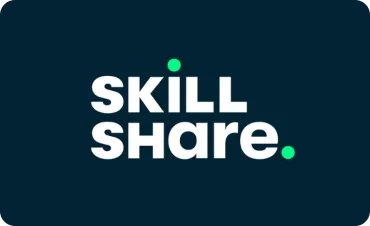When you enroll through our links, we may earn a small commission—at no extra cost to you. This helps keep our platform free and inspires us to add more value.

Blender Strategies for Modeling and Texturing
Unlock creativity with Skillshare! Learn acrylic painting, AI writing, graphic design, and photography. Explore thousands of engaging courses and develop new skills at�your�own�pace!

This Course Includes
 skillshare
skillshare 0 (0 reviews )
0 (0 reviews ) 3 hours 2 minutes
3 hours 2 minutes  english
english Online - Self Paced
Online - Self Paced course
course SkillShare
SkillShare
About Blender Strategies for Modeling and Texturing
Introduction
The Bevel and Spin Tools
Blocking in the Basic Shapes
Pivot Points and the 3D Cursor
The Boolean Modifier
The Subdivision Surface Modifier
Normals and the Array Modifier
Blender's Modifier Stack
Adding External Details
Adding Internal Details
Geometry Issues
Fixing Geometry Issues
Finishing the Modeling
Adding Materials
More Materials and UV Mapping
Adding Image Textures
Using a Displacement Map
Finishing the Texturing
Setting Scale and Using an HDRI
Adjusting the Lighting
Adding Grunge and Rendering
Adjusting Depth of Field
Conclusion
What You Will Learn?
- Are you just beginning in Blender and having trouble putting all the pieces together to create a finished scene? Would you like to learn how to create a realistic render from start to finish? How to approach a complex project? And also learn some strategies and tips along the way?.
- This course will take you through the entire process of creating a scene in Blender, from the first polygon to the final render. And as we go I'll explain my thought processes and workflows so you can adopt and adapt these techniques to your own projects. You will have access to all of the Project Files for the course, including the Blender Scene files, the reference images, and the textures; allowing you to examine the Blender files each step of the way and follow along at your own pace..
- For our project we will create a Dualit toaster; using reference images, Blender’s modeling tools, and its modifiers stack. We will be talking about Pivot Points and Normals, and fixing geometry issues. We’ll use Blender’s Shader Editor to create materials and textures. You will learn about Displacement Maps and Grunge maps. And in the end we will set-up an HDR image for lighting and reflections, adjust our Depth of Field, and render a final image..
- So join me, as we explore Blender Strategies for Modeling and Texturing..